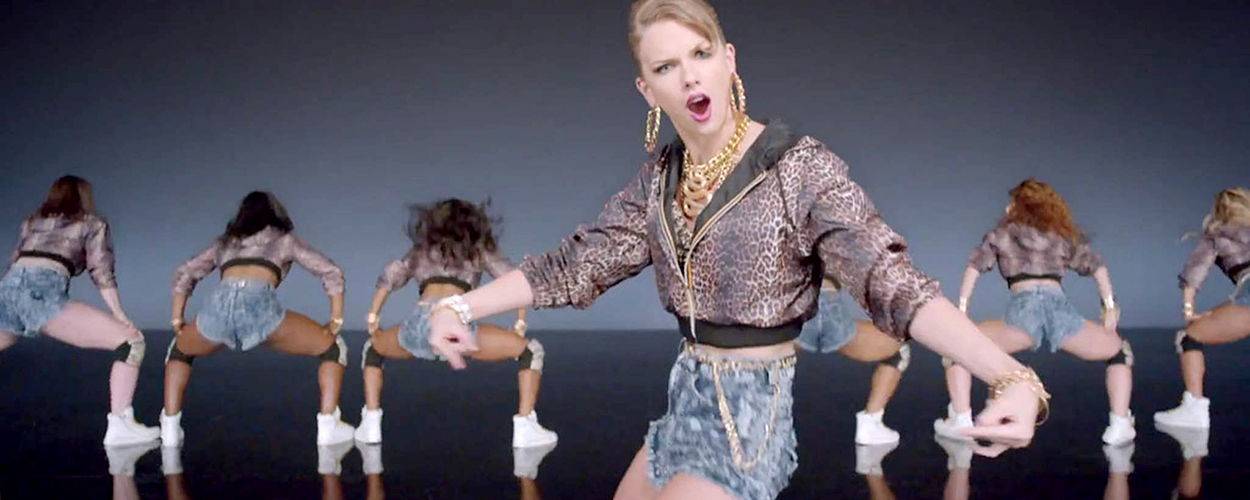This website uses cookies so that we can provide you with the best user experience possible. Cookie information is stored in your browser and performs functions such as recognising you when you return to our website and helping our team to understand which sections of the website you find most interesting and useful.
Artist News Business News Labels & Publishers Legal
Empire copyright case shouldn’t impact on Shake It Off litigation, say Swift’s song-theft accusers
By Chris Cooke | Published on Thursday 27 August 2020

The songwriters who accuse Taylor Swift of ripping off their song when she wrote ‘Shake It Off’ would like everyone to know that a recent ruling on another copyright dispute over the TV show ‘Empire’ is not relevant to their case. That’s only important because Swift’s lawyers reckon that it is.
Sean Hall and Nathan Butler accuse Swift of ripping off their 2001 song ‘Playas Gon Play’ on her 2014 hit in which, of course, she sang that “the players gonna play, play, play, play, play/And the haters gonna hate, hate, hate, hate, hate”. The earlier song contained the lyric “the playas gon play/them haters gonna hate”.
Hall and Butler’s lawsuit was originally dismissed on the basis that players playing and haters hating was all too banal for the duo’s lyrics to be protected by copyright. But the Ninth Circuit appeals court overturned that decision on the basis that the banality, or not, of Hall and Butler’s lyrics and the impact that has on their copyright status was a matter for a jury not a judge to decide.
That means the case is now back with the original district court. And earlier this month Taylor Swift’s legal team filed new court papers summarising once again their various arguments as to why their client’s 2014 lyrics did not infringe any copyright in Hall and Butler’s 2001 song.
Then earlier this week they made another much shorter filing with the court alerting the judge to a recent Ninth Circuit ruling in relation to a copyright dispute over the music-industry-set US TV show ‘Empire’. In that lawsuit a man called Jon Astor-White accused Fox TV of ripping off a treatment he had written for an unproduced music-industry-set TV show called ‘King Solomon’.
That dispute has been bouncing around the US courts for a while now. The most recent Ninth Circuit ruling went against Astor-White, in the process noting that the similarities between his ‘King Solomon’ treatment and the ‘Empire’ series were unprotectable ideas and concepts, and/or common elements of TV shows.
That is why a lawsuit in relation to a TV show concept is of interest to those involved in a lawsuit in relation to a song. After all, Team Swift’s core argument is that the only similarity between ‘Playas Gon Play’ and ‘Shake It Off’ is the unprotectable idea and concept that players play and haters hate.
However, shortly after Swift’s reps made the district court aware of the Ninth Circuit ruling, the Hall and Butler team submitted their own legal filing explaining why the ‘Empire’ case is not relevant to their dispute. Like, at all.
That explanation includes the fact that a key issue with Astor-White’s copyright claim was that he had only ever shared his treatment for ‘King Solomon’ with three other people and couldn’t really show how it might have got into the hands of Fox and the creators of ‘Empire’.
Whereas ‘Playas Gon Play’ was commercially released, so it’s much easier to demonstrate how Swift or one of her collaborators may have had access to it prior to writing ‘Shake It Off’.
And while the Ninth Circuit does also discuss the limitations of copyright regarding ideas and concepts in its most recent ‘Empire’ ruling, because that was not key to the court’s ultimate decision such chatter is “pure dicta”, Hall and Butler say. So, just idle commentary by judges that is not a fundamental part of the judgement.
Plus, Hall and Butler’s lawyers go on, just in case that first argument doesn’t work, whereas the ‘King Solomon’ treatment and ‘Empire’ series only loosely shared unprotected ideas and concepts, the shared ideas and concepts in ‘Playas Gon Play’ and ‘Shake It Off’ are expressed in a very similar way, which is where the copyright claim comes from.
So, basically, Hall and Butler would like you all to ignore the ‘Empire’ ruling. Which, you possibly were already. Though really it’s the judge in the ‘Shake It Off’ song-theft case who needs to completely ignore that totally irrelevant telly case that really doesn’t matter.





